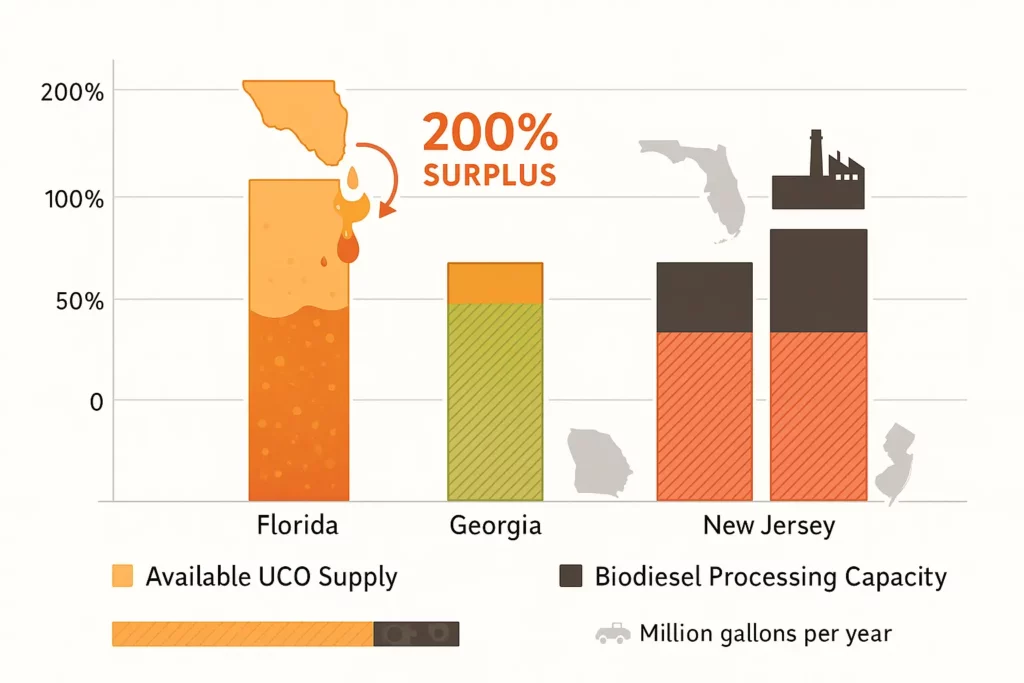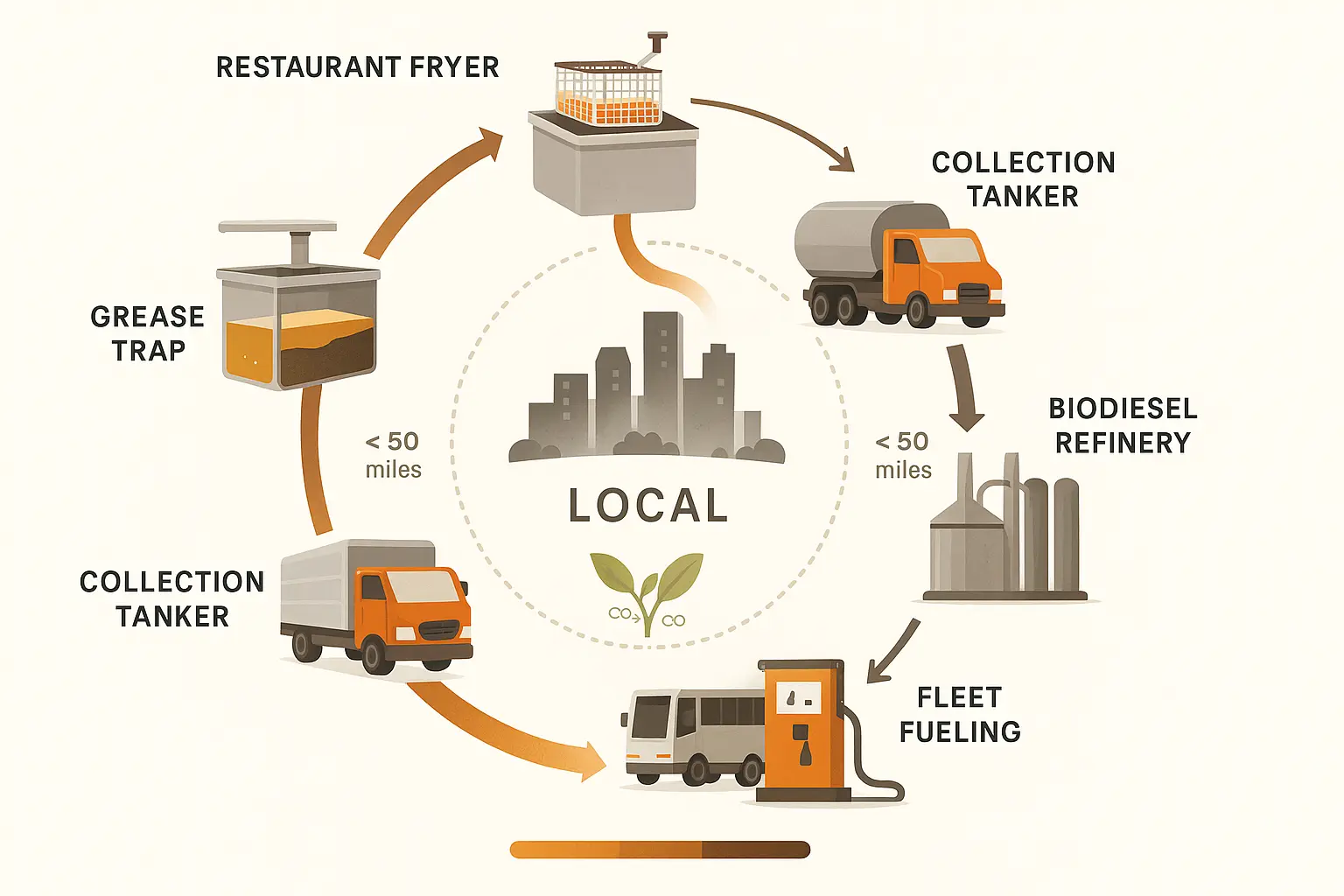Florida’s commercial deep fryers churn out roughly 16 million gallons of waste oil every year double the rated 8 MMgy capacity of its only in state biodiesel facility, according to Grease Connections modelling and the U.S. Energy Information Administration (EIA). Georgia and New Jersey tell similar stories, but with zero local refining headroom. The mismatch means golden fuel slips across state lines or straight into landfills while fleets pay more for diesel and lawmakers chase emissions targets.
How We Modelled Grease Supply
Our Topic 1 model layers Bureau of Labor Statistics restaurant counts, average seat turnover, QSR vs. full service menu splits, food truck permits, and a conservative 1.8 gal/week per seat usage factor. We calibrated the output against municipal hauler manifests and county septic trap reports to dampen outliers. The result: a statistically tight estimate of surplus fry oil that accurately reflects current post pandemic dining volumes and excludes industrial tallow.
Snapshot of In State Biodiesel Capacity
| State | Operating biodiesel plants | Annual capacity (MM gal/yr) |
|---|---|---|
| Florida | 1 | 8 |
| Georgia | 0 | 0 |
| New Jersey | 0 | 0 |
Even after a decade of Renewable Fuel Standard incentives, only one qualifying plant exists across the three state focus area.
Modeled Grease Volume vs. Capacity Gap
| State | Modeled fryer oil volume<br>(MM gal/yr) | Surplus / Deficit<br>vs. Capacity |
|---|---|---|
| Florida | 16 | +8 (200% of capacity) |
| Georgia | 10 | +10 (∞% no local plant) |
| New Jersey | 7 | +7 (∞% no local plant) |
Why the Gap Matters
Without nearby refining, used cooking oil travels hundreds of miles to Gulf Coast or Midwest processors, inflating carbon intensity by up to 18 g CO₂e/MJ. Meanwhile, fleets buying ultra low sulfur diesel absorb price volatility that local B100 could mute. Closing the loop would:
- Cut Scope 3 emissions for restaurant chains.
- Create in state green energy jobs.
- Stabilize fuel costs for municipal fleets and school districts.

What It Takes to Close the Loop
- Aggregation Hubs – Regional depots reduce hauling dead head miles and guarantee plant scale feedstock volumes.
- Public Private Catalysts – Low interest Clean Fuel bonds can derisk the $0.85 to $1.10/gal capex of modular esterification skids.
- Restaurant On Ramps – Mandatory grease recycling ordinances paired with hauler reporting unlock traceability credits similar to LCFS.
With these levers, Florida could validate a self sufficient circular fuel model other Southeastern states can emulate.
Next Steps for Stakeholders
- Restaurant groups: Audit fryer oil capture rates and renegotiate rebates tied to real time tank telemetry.
- Haulers: Partner with bio refineries on take or pay contracts to secure project finance.
- Policy makers: Carve out a state level RFS carve in that recognizes in state feedstock to fuel efficiency multipliers.
Grease Connections will publish quarterly dashboards so operators can benchmark volumes and track progress toward a closed loop biodiesel economy.









